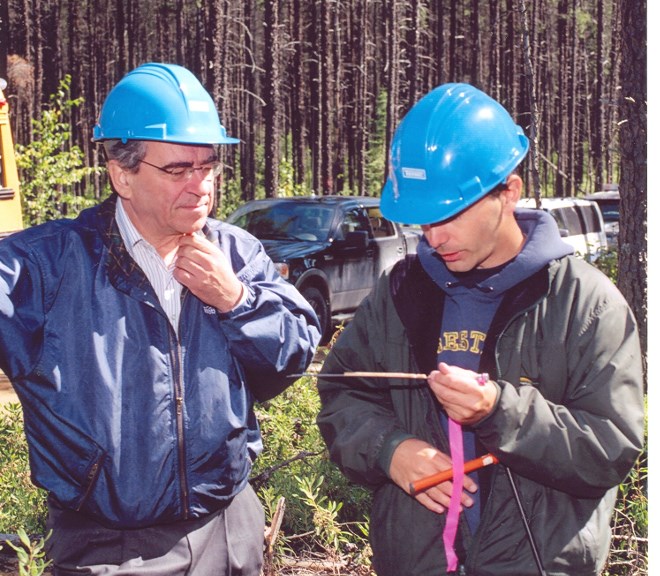Forest industry icon Frank Dottori is retiring from the lumber business in northwestern Ontario, and has announced his successor.
Tony Wyszkowski is the new president of WRC Timber Inc., a private holding company with assets that include White River Forest Products, Hornepayne Lumber and Hornepayne Power.
Jan. 2 is his first day on the job.
Wyszkowski spent 19 years with Parker Hannifin, a Cleveland-based motion and control technology giant and Fortune 250 global company.
He’s made management stops in Toronto, Milton, Grimsby, and recently wrapped up a four-year stint as general manager of its instrumentation production division in Huntsville, AL.
Born and raised in South Africa, Wyszkowski is a mechanical engineering graduate of the University of Witwatersrand of Johannesburg. He came to North America more than 20 years ago.
He is described in a company news release as a “calm and thoughtful leader” whose is well acquainted with running multi-million-dollar industrial operations.
After an “extensive search” to find Dottori’s successor, the company said it was Wyszkowski’s “dedication to improving the bottom line and affecting positive culture change that set him above other candidates.”
A company news release describes him as a team player whose management style is one of “building trust through open communication.”
“His entrepreneurial spirit, work ethic, vast experience with Fortune 250 companies, and leadership qualities are sure to put White River Forest Products GP, Hornepayne Lumber GP, and Hornepayne Power Inc., on track to becoming more effective organizations able to prosper throughout the economic cycle.”
Dottori departs the scene as one of the legends in the Canadian forestry industry.
Well known as the founder of Tembec, Dottori came out of retirement in 2013 to revitalize the shuttered former Domtar mill in White River, before heading up Highway 631 in 2016 to acquire the idled Hornepayne mill and adjoining co-generation power plant.
Along the way, he struck partnerships with area First Nations in making them part owners of the operations, offering them training and employment positions on the mill floor, and providing them with harvesting opportunities to feed fibre to the mills.




